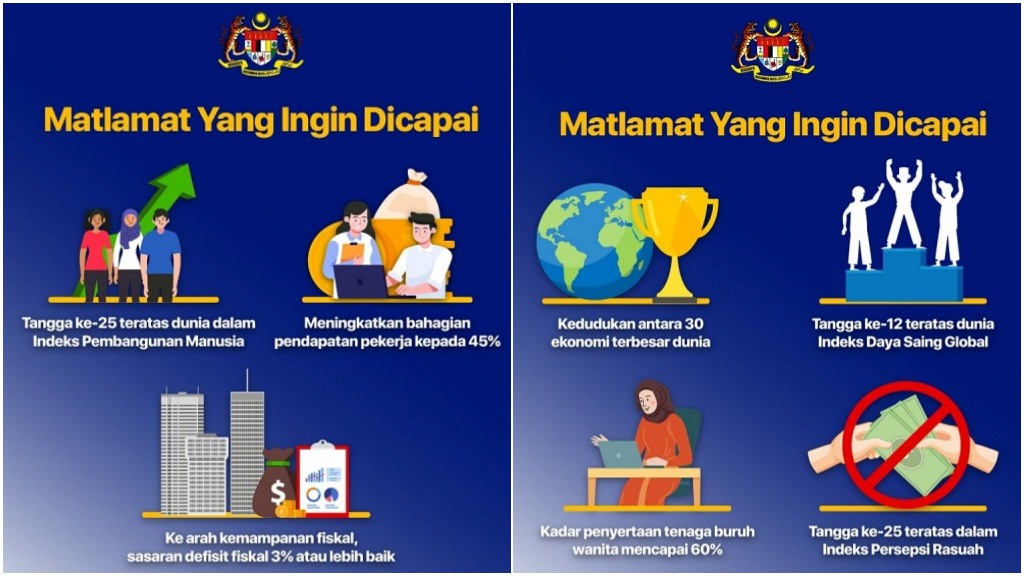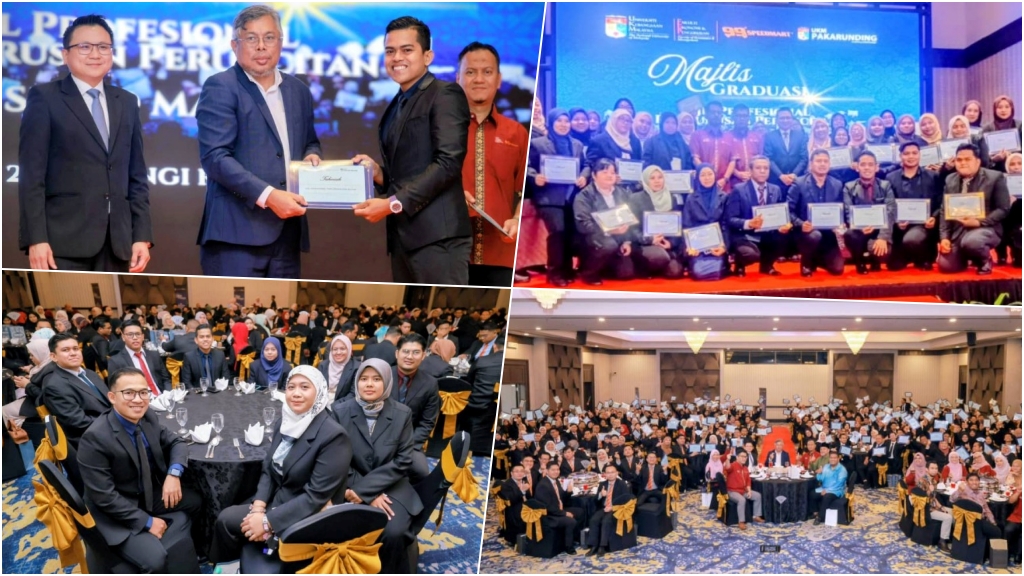
By Dr Paul Anthony Maria Das and Dr Uma Murthy
Taylor's University
“Ekonomi Madani" by Prime Minister Datuk Seri Anwar Ibrahim vividly portrays Malaysia's aspiration to be at the forefront of the world economic competition by setting seven intermediate targets as medium-term targets to be achieved within ten years for starters.
With the tabling of Budget 2024 this October, the government will be able to fulfill its aspirations through effective allocation of resources into the appropriate areas.

The first target is to be among the top 30 largest economies in the world, which Malaysia can aim for by leveraging its strong manufacturing base. In particular, its electronics and automotive industries has attracted global investments and contributed to economic growth.
By fostering innovation and developing high-technology industries like semiconductor manufacturing and the digital technology sector, Malaysia can further enhance its global standing and capitalise on the growing digital economy.
Initiatives to support startups, enhance digital infrastructure, and promote digital transformation across industries can spur economic growth and create new opportunities for businesses.
Additionally, strategic investments in infrastructure, such as the East Coast Rail Link and the expansion of ports, can improve connectivity and boost trade, making Malaysia an attractive investment destination in both traditional and digital industries.
Implementing reforms to enhance ease of doing business, promoting sustainable practices, and investing in education and skill development, including digital skills, will also play a crucial role in driving economic growth and achieving Malaysia's goal of becoming one of the top 30 economies in the world.
The second target where Malaysia aims to be within the top 12 in the Global Competitiveness Index by enhancing its business environment, innovation, and human capital development by implementing reforms on business processes and promoting collaboration between universities and industries. This can drive innovation and create a knowledge-based economy.
Investing in education and skill development, particularly in fields relevant to the digital economy and emerging industries, will further enhance Malaysia's human capital and workforce productivity.
As an example, Malaysia can draw inspiration from its efforts in establishing technology hubs like Cyberjaya and investing in educational institutions that prioritise STEM (Science, Technology, Engineering, and Mathematics) fields.
By implementing these strategies and building on its strengths, Malaysia can climb the Global Competitiveness Index ranks and become a more attractive destination for businesses and talents globally.

The third and fourth target is to achieve the labor income and female workforce participation goals, Malaysia needs to be implementing equal employment opportunities, promoting affordable and accessible childcare options, reviewing labour policies to address gender disparities in wages, and providing support for women entrepreneurs which can encourage more women to join and remain in the workforce.
Investing in education and skill development, particularly in fields with high labour income potential, and eliminating gender stereotypes through awareness campaigns will empower women to pursue rewarding careers.
The fifth target, to be ranked within the top 25 in the Human Development Index (HDI), Malaysia can focus on various areas to improve the overall well-being of its citizens.
Investing in quality education and healthcare services is crucial, as these factors significantly contribute to human development.
For example, Malaysia can allocate more resources to improve the quality of public schools and ensure equal access to education for all.
Investing in healthcare infrastructure, increasing the availability of medical facilities, and providing affordable healthcare services will also enhance the population's health and life expectancy.
Moreover, addressing income inequality, promoting inclusive economic growth, and implementing social welfare programs can help uplift marginalised communities and improve overall human development indicators.
By prioritising these areas and ensuring equitable development, Malaysia can make significant strides in improving its HDI ranking and fostering a higher quality of life for its citizens.

The sixth target, Malaysia can implement robust anti-corruption measures and promote a culture of transparency and accountability.
Strengthening the independence and effectiveness of anti-corruption institutions, such as the Malaysian Anti-Corruption Commission (MACC), will be crucial in investigating and prosecuting corruption cases.
Implementing electronic governance and digitalising government services can reduce opportunities for corruption and enhance transparency.
Malaysia can also introduce laws that protect whistleblowers and encourage reporting of corruption incidents.
Additionally, promoting public awareness campaigns and ethics training for public officials and private sector employees can foster a culture of integrity and ethics in all aspects of society.
By demonstrating a strong commitment to combating corruption and ensuring effective enforcement, Malaysia can improve its Corruption Perceptions Index ranking and gain international recognition as a transparent and corruption-free nation.
The seventh target is where Malaysia can implement prudent fiscal management and focus on revenue enhancement and expenditure control. Increasing tax collection efficiency and expanding the tax base can boost government revenue.
At the same time, the government can rationalize spending and prioritize key areas such as education, healthcare, and infrastructure while cutting back on non-essential expenses.
Implementing performance-based budgeting can ensure that public funds are allocated efficiently and effectively.
Moreover, Malaysia can explore public-private partnerships (PPPs) for infrastructure projects to share the financial burden and attract private sector investments.
By exercising fiscal discipline and implementing revenue and expenditure reforms, Malaysia can work towards achieving a sustainable fiscal deficit level of three percent or lower and maintain economic stability and growth.
By diligently implementing these strategies and maintaining a strong commitment to economic progress, Malaysia can chart a path towards sustainable and competitive economic development, transforming itself into a dynamic and prosperous economy within the global landscape.
Dr Paul Anthony Maria Das and Dr Uma Murthy are lecturers for the School of Accounting and Finance at Taylor’s Business School, Faculty of Business and Law, Taylor’s University. This article is the authors' personal opinion.












